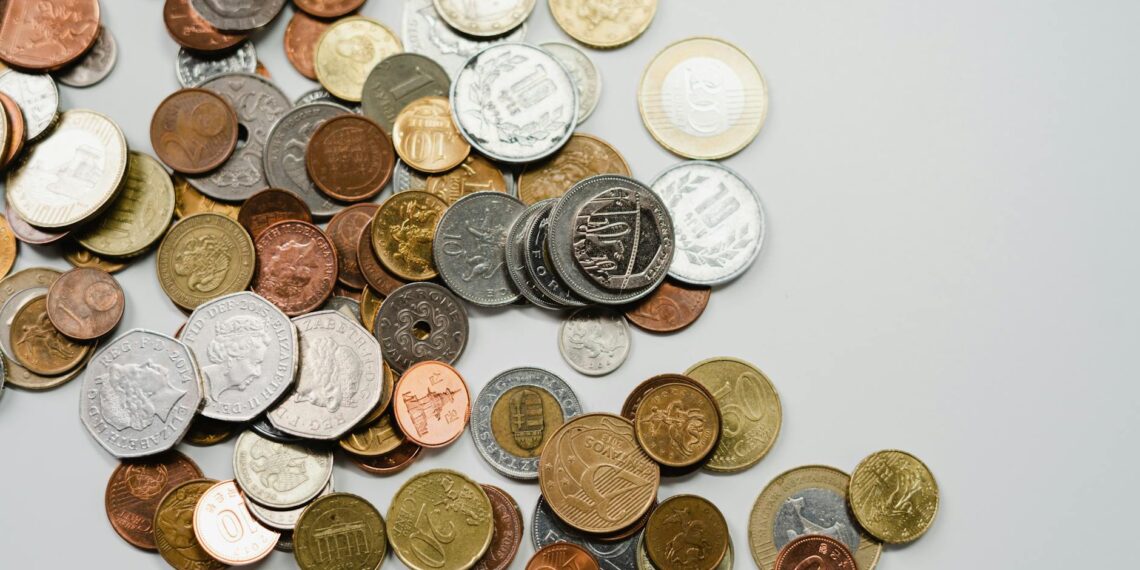Determining the value of a coin collection involves a systematic approach, considering various factors that influence a coin’s desirability and market worth.
Here’s a step-by-step guide to valuing your coin collection:
- Catalog your coins: Document each coin’s country, date, denomination, mint mark (if present), and any identifying features.
- Organize by logical groupings: Group coins by type, time period, or country to streamline the valuation process.
- Assess the visual condition: Carefully examine each coin for signs of wear, scratches, dings, or damage.
- Understand the Sheldon grading scale: Familiarize yourself with the 70-point Sheldon scale (from Poor (P-1) to Mint State (MS-70)), which is widely used in numismatics to describe a coin’s condition and assign a grade.
- Consider professional grading: For high-value coins, consider professional grading services like the [Numismatic Guaranty Corporation (NGC)] or the Professional Coin Grading Service (PCGS), which provide certified evaluations.
- Utilize online databases and price guides: Access resources like the PCGS Price Guide, the NGC Coin Explorer, or specialized online databases that offer pricing information based on a coin’s type, date, mint mark, and grade.
- Check auction results: Review past auction records on platforms like eBay, Heritage Auctions, or GreatCollections to understand recent sales prices for similar coins.
- Consult coin catalogs and reference books: Refer to resources like A Guide Book of United States Coins (‘Red Book’) or the Standard Catalog of World Coins to find detailed information and price guidelines for specific coins.
- Rarity: Limited production runs or unique historical backgrounds often drive higher demand and increased value.
- Condition: Well-preserved coins with minimal wear, [good luster] , and original features typically fetch higher prices.
- Historical Significance: Coins tied to significant events or periods can appreciate considerably in value due to their connection to a story.
- Metal Content: The intrinsic value of precious metals like gold or silver can contribute to a coin’s worth, particularly for older coins.
- Minting Errors or Varieties: Unique errors during the minting process, like doubled dies or off-center strikes, can be highly valuable to collectors.
- Demand and Market Trends: Popularity among collectors and current market fluctuations impact how much buyers are willing to pay.
- Seek a professional appraisal for valuable coins: For high-value or rare coins, consulting a certified coin appraiser for an unbiased and expert valuation is highly recommended.
- Finding a Qualified Appraiser: Search for reputable appraisers affiliated with organizations like the American Numismatic Association or consider the professional services offered by auction houses or certified appraisal firms.
Important Notes:
- Do not clean coins: Cleaning can damage the surface and significantly devalue a coin, [according to The Spruce Crafts].
- Proper storage is crucial: Protect your coins from humidity, temperature fluctuations, and physical damage by storing them in a controlled environment using archival-quality holders.
- Beware of scams: Always verify the reputation of coin dealers or buyers before engaging in any transactions.









How do I find the value of my coin collection?
I can help with that. The Coinoscope mobile app makes coin identification and valuation easy – just snap a picture of a coin with your phone camera and the app will show you a list of similar coins. It is fast and accurate. It is a must-have tool for every coin collector and numismatist!
What is the best way to evaluate a coin collection?
From my experience, The Sheldon coin grading scale is used to determine a coin’s value, based on factors such as how well the coin was made, how much wear it’s developed, and the luster. A coin is assigned a number between 1 and 70, as well as an adjective such as poor, good, very fine, or mint state.
How do you get coins appraised without getting ripped off?
Getting a professional appraisal will be the most accurate way to determine a coin’s value. You can get your coins appraised at a local coin shop or at a coin show. Alternatively, you can try to figure out the value of your coins on your own. Coin pricing guides like the PCGS Price Guide provide a good starting point.